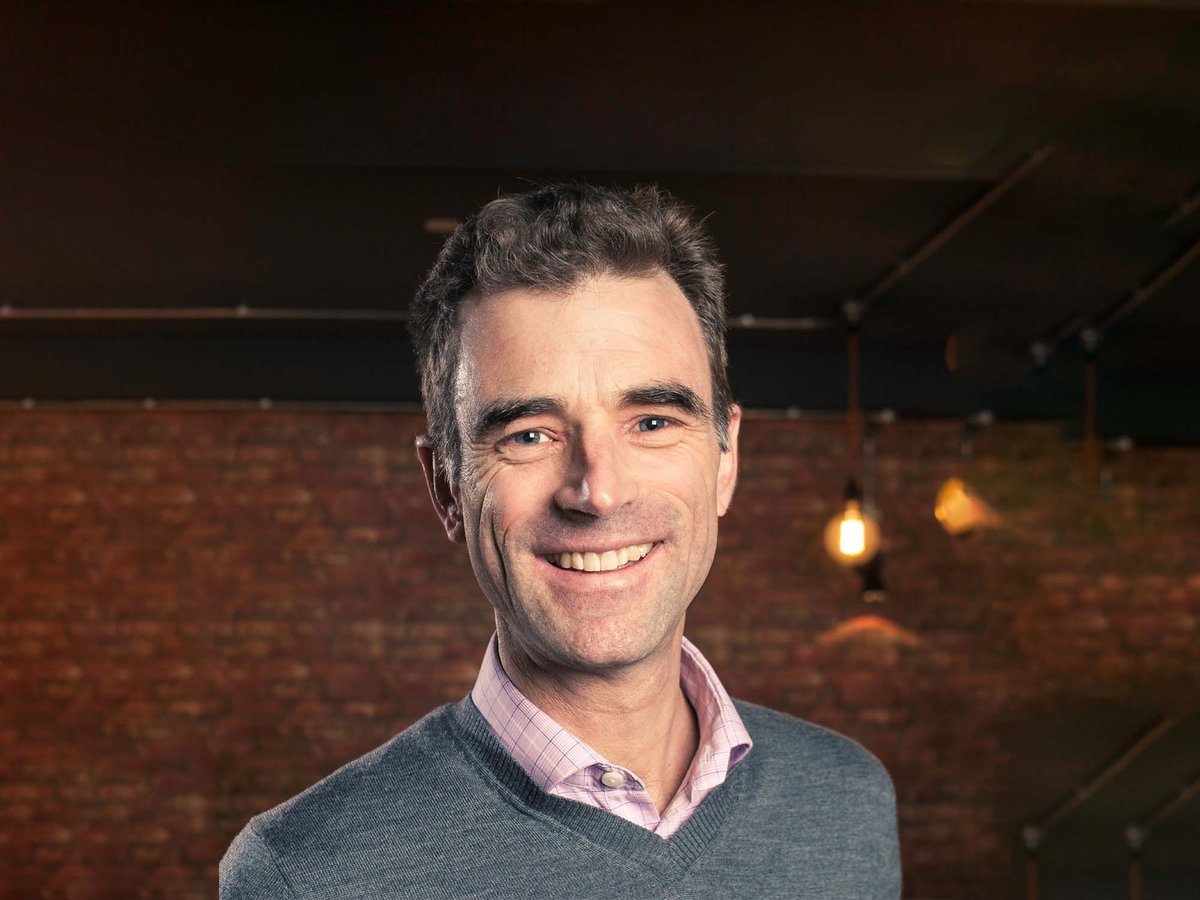Stuart Jackson is the co-founder and Chief Financial Officer at Octopus Energy. Here, he shares his thoughts on how CFOs can benefit from letting go of unhelpful metrics, why a good CFO is like a weighted blanket, and his challenge to his business peers.
How would you sum up the role of the CFO?
I think the role ultimately comes down to risk management in the broadest sense: encompassing everything from liquidity risks to involvement in wider corporate risk management. You have to be flexible and open-minded in your approach to the role and in protecting the interests of the business’s various stakeholders.
Intrinsic to the role is the ability to have different time horizons. Take, for example, the question of liquidity — you need to make sure you have enough to fuel growth, whilst also being cushioned to withstand the shocks that life throws at you. This takes a crystal-clear understanding of the economics and cash flow dynamics at play to ensure that you’re in a strong position both for the short-term and long-term.
How can CFOs contribute to creating a fairer future?
In the past, I’ve asked myself what a “rockstar” CFO looks like, and I couldn’t think of any examples, and I believe this comes down to the lack of visibility that they often have. A huge amount of a CFO’s work is done in the background, with the aim of unlocking growth and performance within the organisation. If they do their job really well it’s quite likely nobody will really notice their role in it — it’s when things go wrong that they are brought into the spotlight.
One of the best things CFOs can do is to be open-minded when it comes to investment decisions. In practice, this means balancing purely financial returns with wider considerations that are often hard to value in the short term, such as customer and societal impact. But in getting this distinction right you’re bolstering brand resilience and demonstrating your commitment to all your stakeholders. Finding the right balance between these two things is incredibly difficult to do, but in today’s world it is more vital than ever.
“Getting the balance right between financial returns and wider considerations, such as customer and societal impact, is incredibly difficult to do, but it’s more vital than ever.”
Want early access to new features and research insights? Register for our newsletter to get notified before everyone else.
Be first to tryWhat societal issues keep you awake at night?
Climate change is a massive issue and one where we have a role to play in addressing at Octopus. There can be no doubt that, as a species, we are behind where we need to be globally. You can almost literally feel the temperature rising. Closer to home, the impact of the energy crisis is something that we see and feel first-hand from its impact on our customers. Our credit team hears difficult stories from our customers and has to navigate some difficult calls.
And that puts us on a fine line — we want to help customers, but if we don’t get paid we won’t survive as a business, and then we won’t be able to help anyone. That means helping where we can, through initiatives that aim to reduce consumption and help people reduce their spending. As a senior management team, we all deal with customer queries on a regular basis. It brings the gravity of the situation home like nothing else.
What is the role of business in solving social issues?
I think that quite a few companies are paying lip service to some areas in ‘ESG’ (environmental, social and governance). Not only is this wrong, if you’re disingenuous you’ll get caught out sooner rather than later, which can have a detrimental effect on your brand and customer perceptions of the business. You have to do what you feel is right, even if it isn’t necessarily the most profitable course of action.
For example, we came across a fantastic way to reduce consumption without actually lowering the temperature of peoples’ homes. That was incredible — we might sell less as a result of it in the short term, but it’s the right thing to do. It also helps us to continually grow in the longer term, as it helps to build the requisite trust we will need from our customers when they rely on us to fill up their car batteries or heat their homes.
“You have to do what you feel is right, even if it isn’t necessarily the most profitable course of action.”
If you could put one challenge to your peers, what would it be?
Throughout my career and especially at Octopus, I’ve seen that CFOs have an ability to create and break out by not being overzealous on any particular metric.
For example, you might get worried about trying to keep call handling time low. This isn’t something we look at: we’re much more interested in the outcome of each call. If you fixate on handling time and force people off the phone quickly, they aren’t focusing on resolution. This will eventually come back to bite you: you’ll expend more time and effort resolving repeated customer contacts and growing issues whilst giving the customer a worse experience.
By letting go of some metrics you give yourself an opportunity to build and test things and make a real difference. That’s just something I’ve observed, but it’s been powerful in encouraging me to let some things go and see what flourishes.



